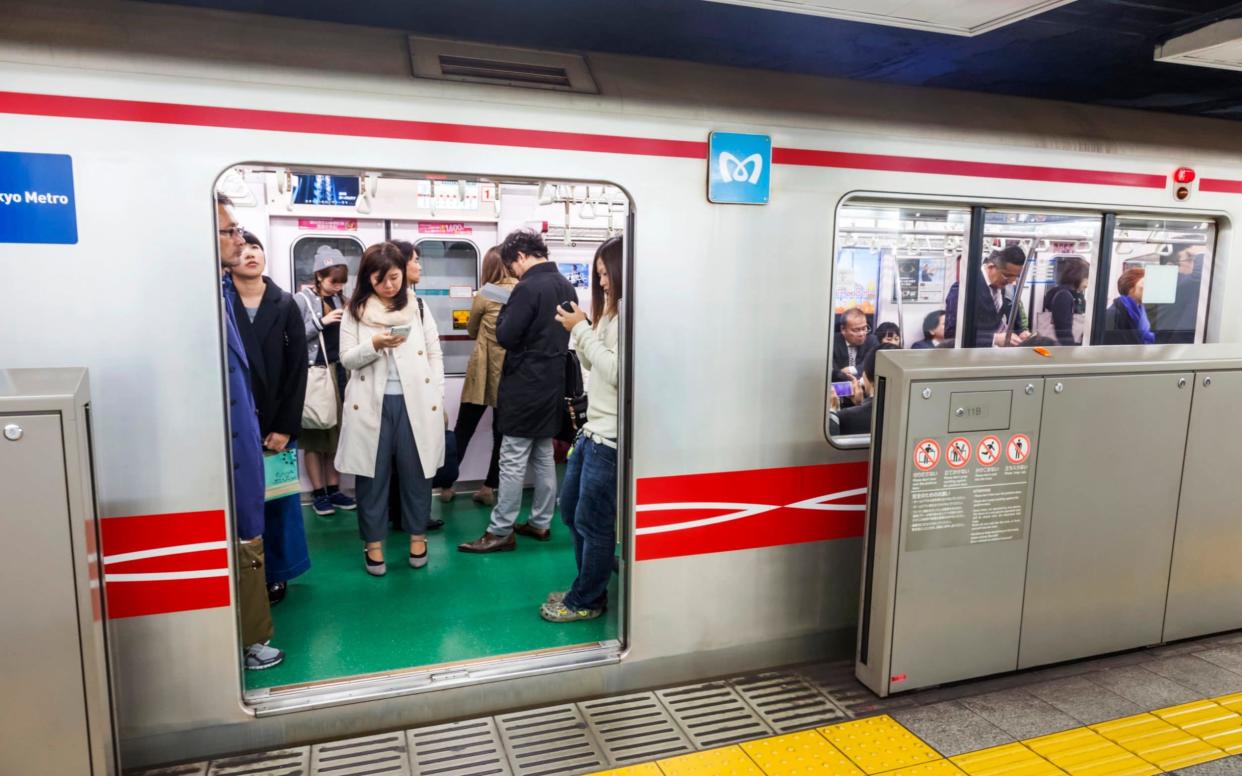Tokyo offers free noodles to commuters who avoid rush hour trains

It is a familiar situation to anyone taking the train to work on a Monday morning: packed carriages, stuffy air and nowhere to sit down.
But a Japanese metro firm thinks it may have found the solution to commuter misery by offering a free bowl of noodles to workers who stop travelling at rush hour.
The Tokyo Metro company says it will ease over-crowding on carriages by giving a coupon for a bowl of soba noodles to every commuter who takes an earlier train for ten consecutive days.
“We hope the campaign will contribute to reducing congestion during peak hours as more people take trains at different times,” said Takahiro Yamaguchi, a spokesman for Tokyo Metro.
The scheme is being tested on the notoriously busy Tozai line, which between 7.50am and 8.50am carries up to 70,000 people - around 199% of its loading capacity.
In some cases, students and part-time workers are hired to push passengers into the carriages until they are packed together like sardines.
"We are aware that the Tozai Line is chronically overcrowded, which has caused passengers trouble,” added Mr Yamaguchi.
Under the proposals, first reported by the Japan Times, commuters must sign up online and then use their travel card to swipe through the gates at a designated pre-rush hour time slot.
Tokyo Metro has said it will only launch the scheme if more than 2,000 commuters sign up. If more than 3,000 do so, tempura will be added to the coupon menu.
A mobile phone app has also been launched which allows travellers to keep track of when the trains are over-crowded.
Some experts have warned the overcrowding is so severe that it could break down and ruin the 2020 Olympics, which will be hosted in Tokyo.
There are also concerns about tourists being unable to cope with the extreme overcrowding of metro stations during peak times.
According to a study last year by Chuo University, the Olympics will bring an extra 650,000 people to Tokyo, where 8m people commute on 47,000 trains.
Officials in Tokyo have been scratching their heads over the congestion conundrum for years. Adding more trains to the timetable is not seen as a viable option as in most stations a train already arrives every one or two minutes.
Carriages could simply be added to existing trains, but this would require major engineering works to extend the platform of every station in Tokyo.
The idea of double-decker trains, with doors at the top and bottom, has also been floated - but these trains would only have doors at each end, rather four or five in the carriage.
Officials said the extra time it takes for passengers to slowly file out at each end would defeat the point of the exercise.
The most simple solution would be allowing employees to work from home or adopt more flexible shifts, but this would be hard to reconcile with the country's notoriously rigorous work ethic.

 Yahoo News
Yahoo News 
